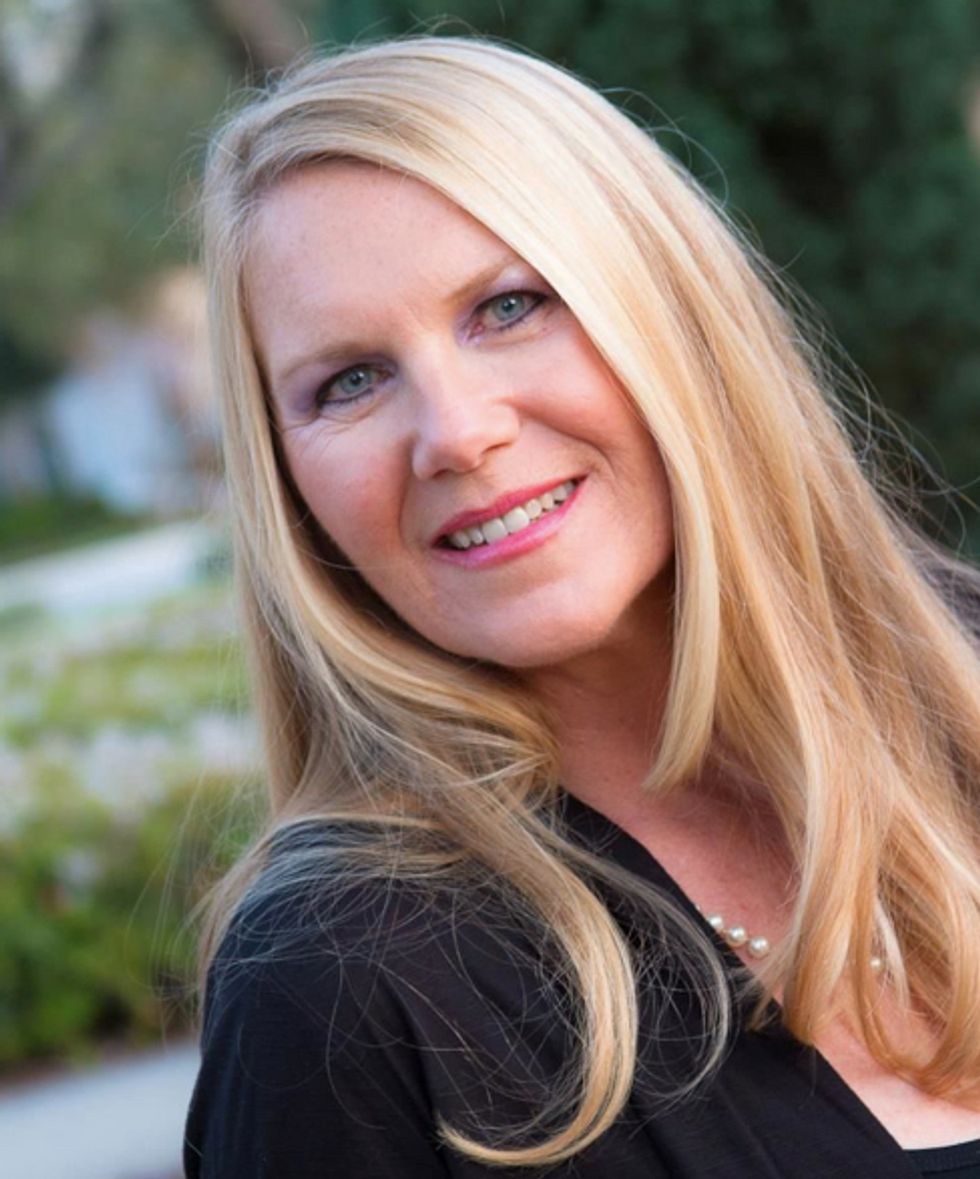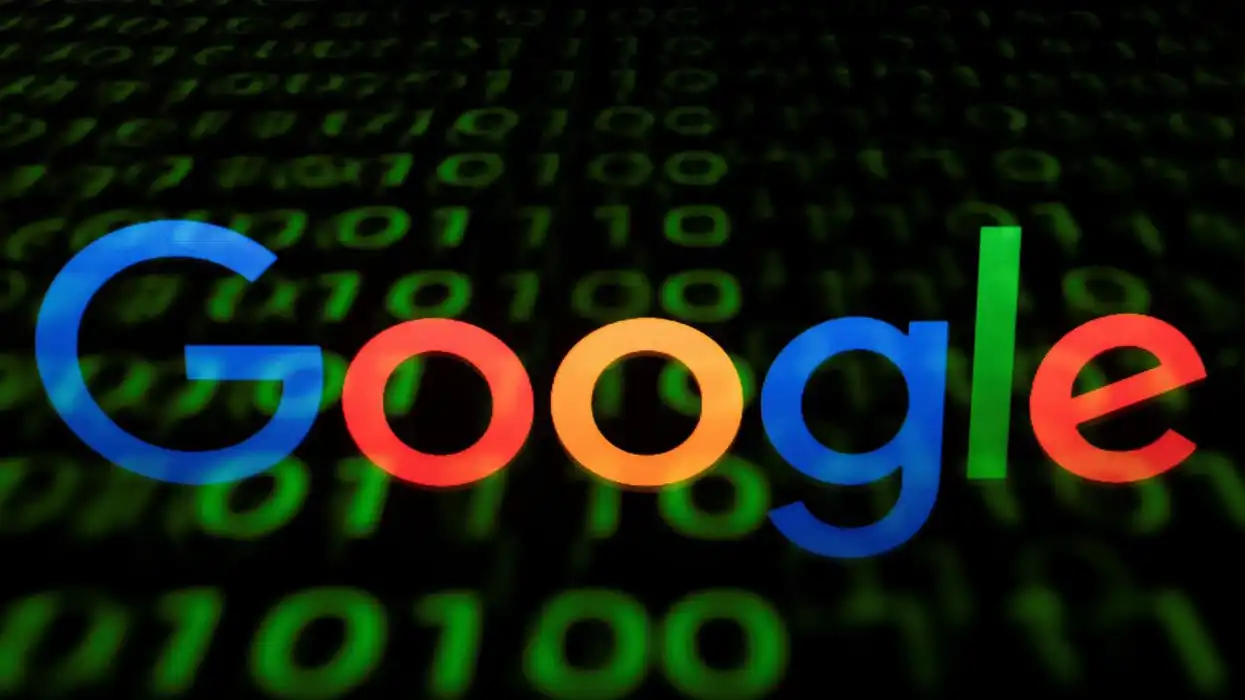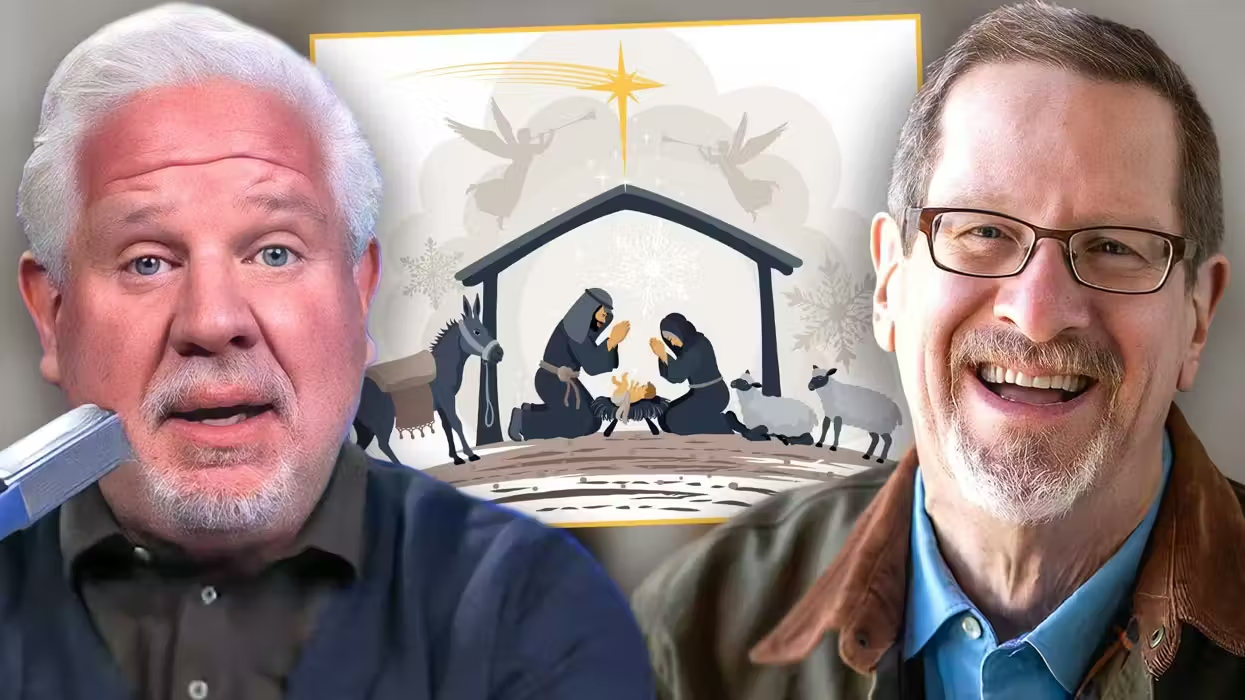
© 2025 Blaze Media LLC. All rights reserved.
Ex-Astronaut Has a Major Message About God, the Big Bang — and What Happens If Christians Refuse to Ask Key Questions
May 18, 2015
"If we don't allow ourselves to question anything, then our faith is a very shaky faith."
Dr. Leslie Wickman, a scientist and former astronaut who once served as a Hubble Space Telescope engineer, fervently believes that the ongoing debate over the perceived incompatibility of science and religion is merely "an illusion of conflict."
Wickman, a Christian who has no problem accepting both science and religion as palatable realities, recently told The Church Boys podcast that she grew up in a Bible-believing home and was raised to embrace that "God was the source of all ... wonder" on the Earth and in the skies.
"It's an illusion of conflict ... perpetuated by people at the extremes of the dialogue," she said of those who staunchly debate over whether science and faith can truly mesh.
Wickman, who now heads the department of engineering and computer science at Azusa Pacific University in Azusa, California, and is the author of the book "God of the Big Bang: How Modern Science Affirms the Creator," said that "fundamentalists" on both sides of the discussion make finding a middle ground quite difficult.
Listen to Wickman discuss faith and religion below (interview starts at the 33:30 mark):
Subscribe to The Church Boys on iTunes
"At one end we have the atheistic fundamentalist who would say that science explains everything and that there is no room for God," she said. "And at the other end, we might have religious fundamentalists who think that there's no room for science, that science is the enemy that the Bible is a scientific textbook."
The scientist continued, "Because I believe that God is who he claims to be as the creator of everything, then it doesn't seem logical to me that the truth about God and who he is could contradict the truth about his creation — and so, for me, there's this kind of fallacy in logic that if you study what God's created it's somehow going to contradict who he is."
Wickman said that she is careful not to tell others what to think when it comes to creation, but that she believes there is compelling evidence for an old Earth and for the potential that God used various processes in the development of creation, discussing her view that the Earth is likely not as young as some creationists believe — and that evolution is a plausible explanation.
She said that it's important to follow scientific methods — both natural and scriptural — when examining the Earth and its beginnings.
"If we don't allow ourselves to question anything, then our faith is a very shaky faith."
While she's aware that many stick to a very literal interpretation of the Genesis narrative, she said that it's important for believers to also explore context, audience and other elements surrounding the text.

Follow The Church Boys on Facebook and Twitter
"If you think about Genesis being written thousands of years ago to a pre-scientific society ... just imagine if God had chosen to inspire the writer to speak in terms of what we know as modern science and dark energy and dark matter — and the expansion of the universe," Wickman said. "It would have just been nonsense. They wouldn't have any context for that. It would have been meaningless to the original audience."
Want to leave a tip?
We answer to you. Help keep our content free of advertisers and big tech censorship by leaving a tip today.
Want to join the conversation?
Already a subscriber?
Billy Hallowell is a digital TV host and interviewer for Faithwire and CBN News and the co-host of CBN’s "Quick Start Podcast."
Billy Hallowell
Billy Hallowell is a digital TV host and interviewer for Faithwire and CBN News and the co-host of CBN’s "Quick Start Podcast."
more stories
Sign up for the Blaze newsletter
By signing up, you agree to our Privacy Policy and Terms of Use, and agree to receive content that may sometimes include advertisements. You may opt out at any time.
Related Content
© 2025 Blaze Media LLC. All rights reserved.
Get the stories that matter most delivered directly to your inbox.
By signing up, you agree to our Privacy Policy and Terms of Use, and agree to receive content that may sometimes include advertisements. You may opt out at any time.






